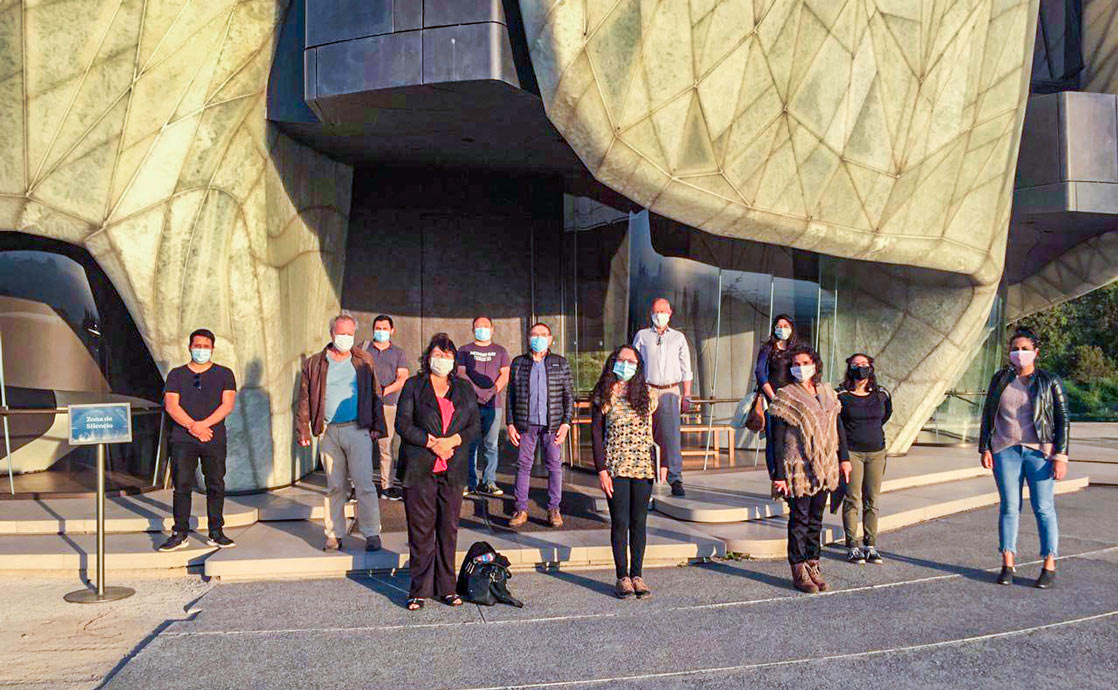The evolving political landscape in Chile, marked by the seismic shift instigated by the demand for a new constitution, serves as a microcosm for global discourses around governance, justice, and social cohesion. It is not merely a response to historical grievances but encapsulates a profound yearning for identity, representation, and the collective aspiration for a fairer society. This national conversation has galvanized diverse communities, echoing Bahá’í teachings that emphasize unity, consultation, and the importance of collective decision-making.
At the heart of this transformative discourse lies the Bahá’í principle of consultation, a mechanism profoundly rooted in the teachings of Bahá’u’lláh. This principle underscores the belief that constructive dialogue among all segments of society is essential for cultivating understanding and enacting social change. In this light, the constitutional discussions in Chile should not be viewed solely as political negotiations but as an opportunity for the Chilean populace to engage in meaningful consultation—one that transcends the confines of traditional adversarial politics.
The dialogue surrounding the new constitution showcases a broad spectrum of voices from various sociocultural backgrounds. Each contribution, irrespective of its origin, enriches the collective narrative and allows for a pluralistic approach to national identity. The Bahá’í teachings advocate that the diversity inherent within societies should be perceived as an asset rather than a barrier. Such inclusivity is critical in the Chilean context, where historical injustices and marginalization have significantly shaped public sentiment and policy. The notion that every individual has the capacity to contribute to the betterment of society resonates deeply within Bahá’í philosophy and is vividly manifested in Chile’s constitutional conversations.
Furthermore, the urgency of establishing a new constitution can be interpreted as an impetus for societal healing. The historical context is replete with episodes of oppression, inequality, and societal division. The Bahá’í perspective posits that true justice can only be realized through the active participation and empowerment of all citizens. The constitutional process can, therefore, be seen as a restorative endeavor that seeks to reconcile past injustices while fostering a collective vision of hope and progress. In essence, it embodies the principle that a just society is one where the voices of all, including the most marginalized, are heard and respected.
Moreover, the role of youth in the constitutional dialogues cannot be overstated. The influx of younger generations into this discourse signals a transformative shift in political engagement, characterized by a proclivity towards activism and innovation. Bahá’í teachings champion the potential of youth as torchbearers of social progress. Their involvement in the constitutional process exemplifies a fundamental belief that the future should not merely be inherited but actively shaped by those who will ultimately inherit it. The energy and vision of the youth expand the horizons of discourse, pushing beyond conventional paradigms and challenging the status quo.
In exploring the deeper implications of the constitutional discussions, one observes the intricate interplay between governance and spirituality. The Bahá’í teachings emphasize that genuine progress is synonymous with moral and ethical development. As Chile navigates the complexities of drafting a new constitution, the challenge lies in ensuring that the resultant document reflects not only the aspirations of the present but also a vision for a morally and ethically grounded future. This alignment with principles of equity, justice, and unity mirrors the Bahá’í commitment to fostering a moral dimension within the socio-political sphere.
The constitutional process offers a rare opportunity to redefine national governance through the lens of human dignity and rights. The Bahá’í perspective advocates for laws that are not only reflective of societal norms but also transcend them by embodying the principles of justice, equity, and the oneness of humanity. Such a task is fraught with challenges yet equally infused with potential—a potential that resonates with the collective yearning for a new narrative in Chilean society.
As conversations in Chile continue to evolve, the global community watches with keen interest. The outcomes of these dialogues may well influence not just Chilean society but also serve as a resonant model for other nations grappling with similar existential questions. The Bahá’í teachings extend an invitation to envision a world where unity in diversity is celebrated, and where governance reflects an embodiment of collective ideals.
In conclusion, the path paved by the new constitution in Chile represents far more than a legal framework; it represents a profound engagement with the questions of identity, justice, and ethical governance. The Bahá’í teachings illuminate this journey by offering a paradigm rooted in consultation, inclusivity, and collective responsibility. As Chileans aspire to construct a constitutional framework that honors the complexities of their society, they simultaneously endeavor towards a higher ideal—a society that is just, equitable, and unified in its diversity. The unfolding narrative in Chile stands as a testament to the power of conversation as a catalyst for meaningful change, echoing the deep resonance of Bahá’í principles in the quest for a brighter future.
